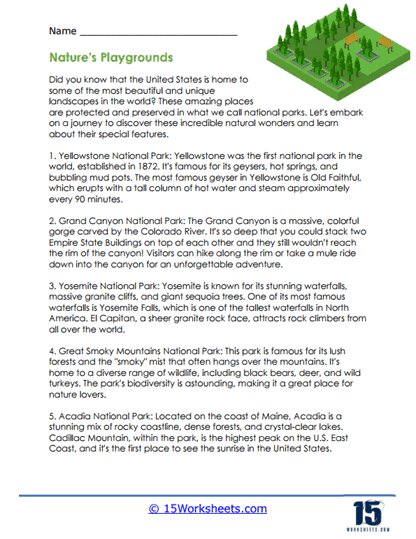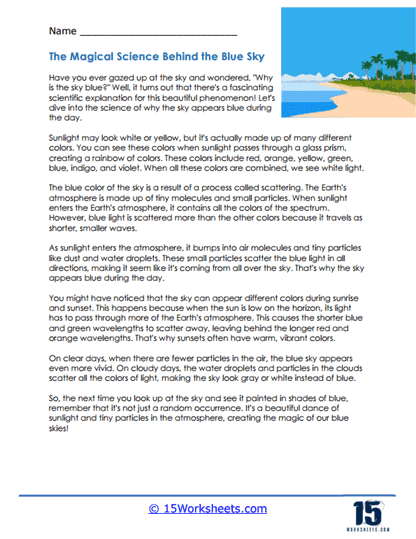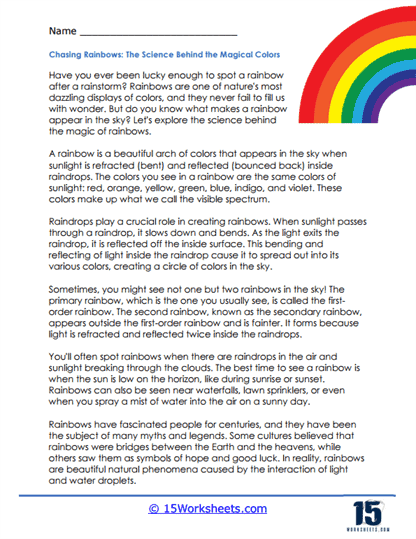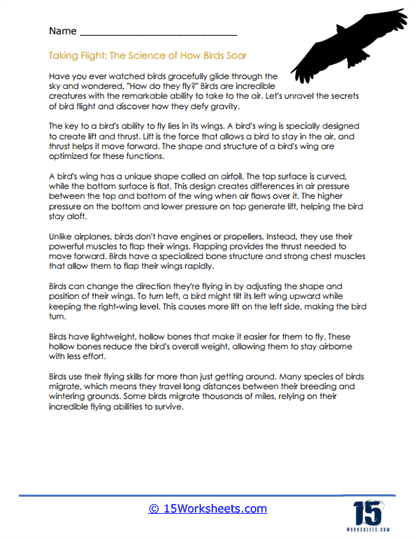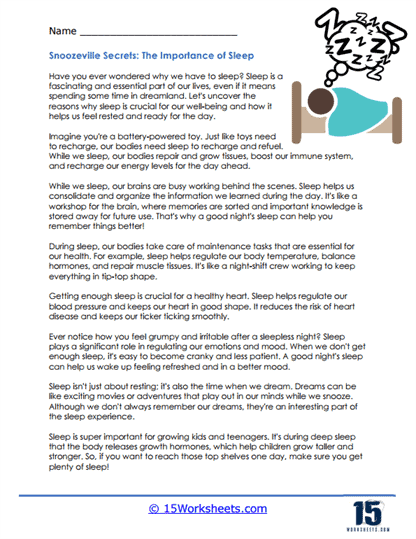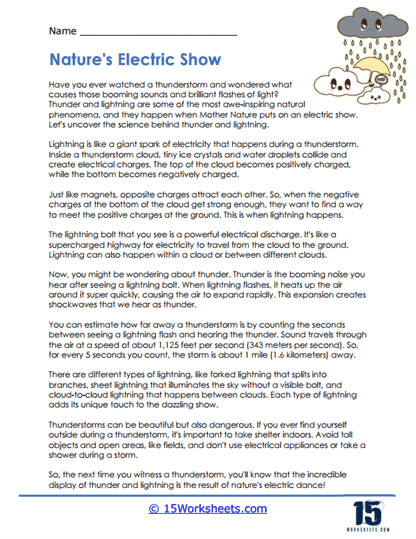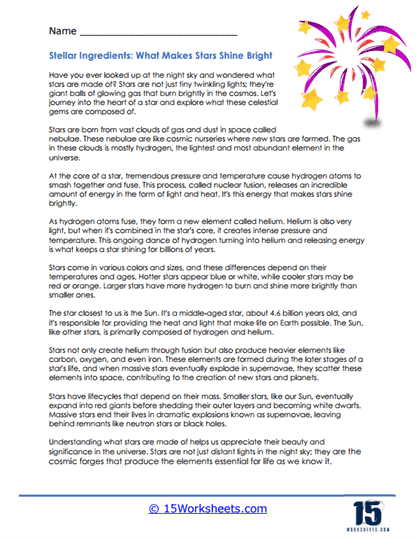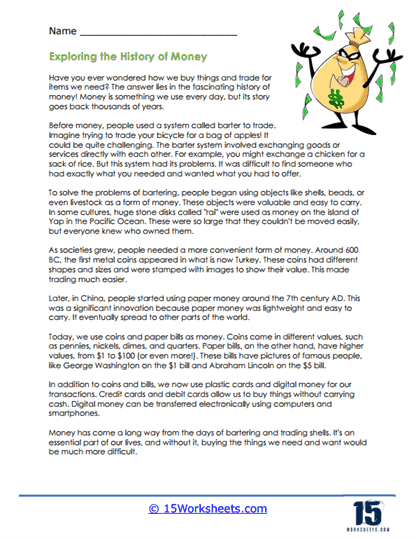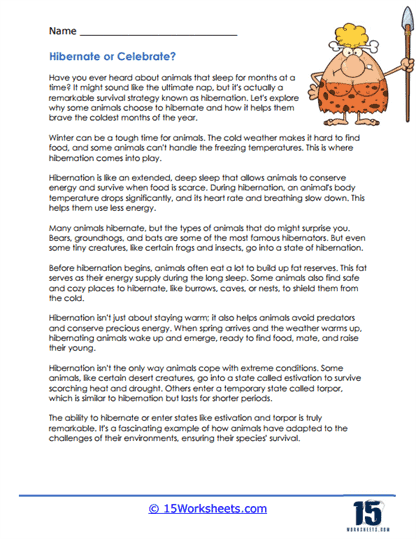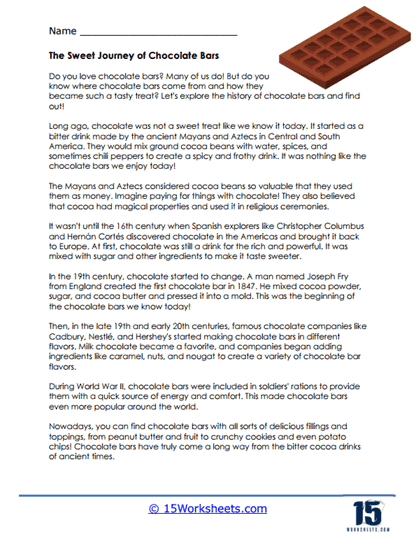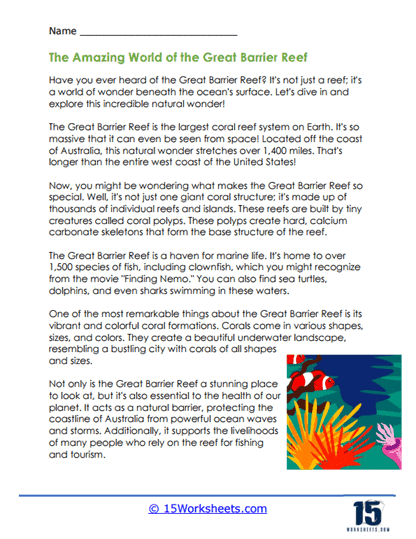Nonfiction Passages with Questions Worksheets
About These 15 Worksheets
These worksheets are versatile tools that not only improve reading comprehension and language arts skills but also prepare students for academic success across various disciplines. By engaging with these materials, students enhance critical thinking, analytical skills, and gain a deeper understanding of the world through the lens of different nonfiction texts.
These worksheets consist of a series of nonfiction texts followed by a set of questions designed to test comprehension, analyze the content, and develop critical thinking skills. The content of these passages can range from historical texts, scientific reports, biographies, to news articles, each offering a different perspective and type of information.
Types of Exercises
Multiple Choice Questions – These questions provide several answers for students to choose from. They test the student’s ability to recall specific details from the text and understand key concepts.
True or False Questions – These require students to assess statements based on the text and decide if they are accurate or not. This type of question helps with fact-checking and critical analysis.
Short Answer Questions – These questions require a brief written response. They encourage students to express their understanding in their own words, which aids in enhancing their writing skills and comprehension.
Vocabulary Questions – These focus on specific words used in the passage. Students may need to define words, use them in a sentence, or identify synonyms and antonyms, thus improving their vocabulary.
Inference Questions – These go beyond the explicit content of the text, asking students to make logical inferences based on the information provided. This type of question develops critical thinking skills.
Summarization Tasks – Here, students are asked to summarize the main points or the overall message of the passage. This exercise enhances the ability to identify key ideas and convey them concisely.
Discussion Questions – These are open-ended questions that encourage students to express their opinions or relate the text to their own experiences. This can stimulate deeper engagement with the material.
Analytical Questions – These questions require a deeper analysis of the text, such as understanding the author’s purpose, the tone, and the structure. They help in developing analytical skills.
Comparative Questions – Students may be asked to compare and contrast the passage with another text, which helps in understanding different viewpoints and enhances comparative analysis skills.
Research-Based Questions – These extend the learning beyond the passage, where students are encouraged to research more about a topic mentioned in the text, fostering research skills.
The Benefits Of These Worksheets
Enhancing Vocabulary and Language Skills – By encountering a variety of texts and vocabulary, students naturally expand their language skills, learning new words and ways to use them.
Improving Reading Fluency – Regular exposure to nonfiction texts helps students become more fluent readers, able to comprehend complex structures and varied writing styles.
Developing Critical Thinking Skills – Analyzing texts, making inferences, and evaluating arguments within the passages encourage critical thinking and reasoning skills.
Building Knowledge Across Disciplines – Nonfiction passages often cover a wide range of subjects, thus broadening students’ general knowledge and understanding of different topics.
Enhancing Writing Skills – By answering short answer and essay-type questions, students improve their writing skills, learning to organize their thoughts and express them clearly.
Encouraging Independent Learning – These worksheets often require students to think independently and form their own opinions, fostering self-directed learning.
Improving Attention to Detail – Answering detailed questions encourages students to pay close attention to the text, enhancing their ability to notice and remember details.
Promoting Engagement with Real-World Topics – Nonfiction texts often relate to real-world issues, which can help students in understanding and engaging with the world around them.
Developing Analytical Reading Skills – Understanding the author’s purpose, tone, and message in various texts helps in developing analytical reading skills, which are crucial for higher education.
Preparing for Standardized Tests – These worksheets often mirror the types of reading comprehension questions found on standardized tests, thus preparing students for these exams.



